The Haley-McCready Outreach and Development Fund and its Founder and Program Director; Dr. John McCready, are experiencing and enjoying great support from the leadership of the Free Methodist Church of Burundi and Hope Africa University.
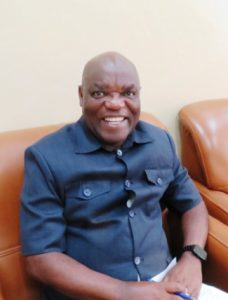
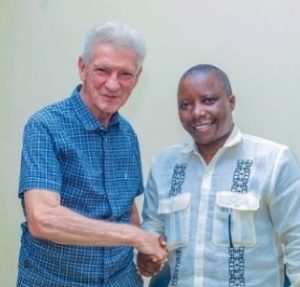
We have had a very productive year and my recent visit to Burundi was very productive. Our last Newsletter announced and described 4 new agriculture and livestock development projects that resulted from our Call for Proposals 2025. Each of the 4 new Project Managers are graduates of Hope Africa University’s Agriculture and Zootechny Program. Three of the projects are located in 3 new provinces for us; KIRUNDO, MAKAMBA and NGOZI Provinces.
This Newsletter announces and describes 4 additional, special agriculture and livestock development projects that resulted outside the usual Call for Proposals process and came from strategically important requests and opportunities from the special interests and support of Hope Africa University and the Free Methodist Church of Burundi.
A few months ago, I was delighted when Rector Servilien NITUNGA asked me to develop community involvement at Hope Africa University’s two Research and Development Centres; Rukaramu (rice fields) and Buringa (animals). For the first time, the Rector wanted some development activities at Rukaramu and Buringa that would serve the local Free Methodist churches and their members. At the Rukaramu rice fields site, the Rector has allowed us to use some of the land for free and Rector has promised to provide training and pigs for the beneficiaries of both the Rukaramu and the Buringa development projects. With support, collaboration and involvement of the University and the Church, the Haley-McCready Outreach and Development Fund has been able to start two new and special agriculture and livestock development projects; one at Rukaramu and another in Buringa (see Project Summary Descriptions below).
- Growing Rice and Breeding Pigs for Vulnerable Women in Rukaramu Hill, Mutimbuzi Commune, Bujumbura Province – Project Managers: Sadi BIGIRIMANA and Euphraim NDIKUMWENAYO
- Cultivating Corn and Soybeans and Breeding Pigs for Vulnerable Women from Buringa Colline, Gihanga Commune in Bubanza Province – Project Manager: Epithace NDUWAYO
A few months ago, I was contacted for the first time by a pastor of the Free Methodist Church of Burundi. Rev. Luc NGENZEBUHORO, the Parish Pastor from the at the Kibuye Mission, indicated that he wanted the Haley-McCready Outreach and Development Fund to work with him and the Church to develop an agriculture and livestock development project to serve poor and vulnerable women from his church and provide training, demonstration and ongoing support for other community farmers. Although the Kibuye Church has a significant amount of land and the Kibuye Hope Hospital provides malnutrition services for children, there has not been any agriculture and livestock development projects for poor women and their children. Accordingly, Kibuye is an exceedingly important strategic location for the development of more holistic services; agriculture and livestock development projects, and, hopefully, agriculture and livestock training, demonstration and ongoing support. With support, collaboration and involvement of the Church, the Haley-McCready Outreach and Development Fund has been able to start two new and special agriculture and livestock development projects at Kibuye (see Project Summary Descriptions below).
- Cultivating Crops and Breeding Goats for Vulnerable Women from Kibuye Colline, Bukirasazi Commune, GITEGA Province – Project Managers: Luc NGENZEBUHORO and Denis NIYUNGEKO
- Cultivating Crops and Breeding Pigs for Vulnerable Women from Kibuye Colline, Bukirasazi Commune, GITEGA Province – Project Managers: Luc NGENZEBUHORO and Denis NIYUNGEKO
TWO NEW SPECIAL PROJECTS AT RUKARAMU AND BURINGA
Project Title:
- Growing Rice and Raising Pigs for Vulnerable Women in Rukaramu Hill, Mutimbuzi Commune, Bujumbura Province
Project Managers:
Sadi BIGIRIMANA holds a Higher Technician Certificate in Agriculture and Zootechnics from Hope Africa University, completed between 2021 and 2023. His academic background reflects a solid foundation in Agriculture and Zootechnics and prepares him well for roles in agricultural development and livestock management. Sadi is an active Pastor with the Free Methodist Church in Kagunuzi, Rugombo Commune and a local advisor for agriculture. Currently, Sadi BIGIRIMANA is an active volunteer Project Manager for a Haley-McCready Outreach and Development Fund agriculture and livestock development project in Cibitoke. In addition, he is responsible for the rice fields at Hope Africa University’s Rukaramu Research and Development site.
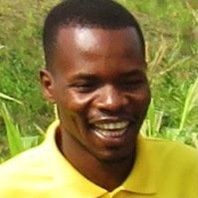
Euphraim NDIKUMWENAYO is an ordained Reverend Pastor with the Free Methodist Church in Burundi. He holds two degrees from Hope Africa University; a Bachelor’s Degree in Bible and Theology and a Master’s Degree in Theological Studies. Euphraim has demonstrated a strong academic journey in both theology and general education. His research includes a published book on tithing and a scholarly article on youth involvement in church activities. As Senior Parish Pastor for Rakaramu and passionate about faith and community, Euphraim contributes to theological knowledge and church engagement in his local church in Rukaramu Hill in Mutimbuzi Commune, Bujumbura Province.
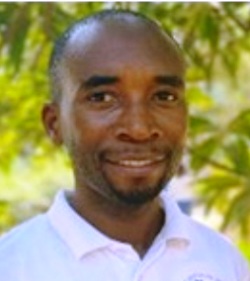
Introduction
Bujumbura is one of the western provinces of Burundi. The province is commonly said to be in the Imbo Region. It is fertile and good to produce some food like rice once they are planted in a good season. The women of Rukaramu Colline in Mutimbuzi Commune are hard workers. They have learned to survive for themselves and for their children day-by- day, year-in, year-out despite the great challenges that surround them.
Rukaramu is a colline (hill) located within the Mutimbuzi Commune of Bujumbura Province in northwestern Burundi. This area is part of the country’s lowest-lying regions, characterized by a combination of plains and valleys. It is situated near the Rusizi River and the Rukoko Natural Reserve, which contributes to its rich biodiversity but also exposes it to environmental challenges.
The residents of Rukaramu, like many in the Mutimbuzi Commune, face several socioeconomic hardships that impact their daily lives. One of the most pressing issues is water scarcity. Access to clean drinking water remains a major challenge, as many people rely on the nearby rivers, which are often polluted and unsafe for consumption. Attempts to improve water infrastructure have been obstructed by acts of sabotage and insufficient funding, leaving the population vulnerable to waterborne diseases.
To ensure the success of an agricultural project in Rukaramu, several key components should be integrated. First, women should receive training in improved agricultural techniques to boost productivity. This should be accompanied by the provision of quality seeds, essential farming tools, and improved access to water. Organizing ten women into the association, a self-help group, will strengthen collaboration and collective responsibility. Additionally, facilitating market access and promoting small-scale agro-processing will help add value to their produce. Finally, incorporating savings and microfinance components will empower women economically and enhance the sustainability of the project.
Environmental challenges, such as frequent flooding, must be addressed through appropriate measures like the use of raised beds and the cultivation of flood-resistant rice. While access to clean water and irrigation present potential challenges, it also offers an opportunity to invest in sustainable water management solutions. To ensure effective mobilization and long-term sustainability, it is essential to work closely with local leaders and churches, who play a key role in community engagement and support.
This project, Growing Rice and Raising Pigs for Vulnerable Women from Rukaramu Colline, Mutimbuzi Commune in Bujumbura Province, is an investment in development and will help the beneficiaries (ten vulnerable women from the Rukaramu Free Methodist Church) to raise their socio-economic vulnerability and become self-managing, self-confident and self-sustaining.
This project aims to improve the living conditions of vulnerable women in the province of Bujumbura, Mutimbuzi Commune, Rukaramu Colline through the implementation of agricultural and livestock activities. With a focus on rice cultivation as well as pig farming, the project will provide stable income and improve food security for vulnerable women and their families.
These activities will be supported by training on modern agricultural practices and livestock management. In addition to ensuring food self-sufficiency, the project will allow vulnerable women to generate income by selling their agricultural and livestock products.
Developing the Association
To start the project, the Project Manager will collaborate with local church leaders to select 10 poor female beneficiaries. The next meeting will be with the potential beneficiaries to describe the project, the association, and the importance of working together. The Project Manager will explain the purpose of the project and emphasize the value of collaboration within the self-help association named AMAHORO (PEACE).
The beneficiaries will sign an agreement to join the association, commit to collaboration, and agree to respect the association’s leaders, rules and regulations. Once the association is established, members will elect their officers: a President, a Secretary-Treasurer, and an Advisor. The association will be a participatory, democratic organization with its members serving as both the workforce for development activities and the recipients of all project benefits. The self-help association will serve as the primary vehicle for implementing development activities and building capacity for self-management, self-governance, and long-term sustainability.
Cultivating Rice
The project will be used to enable the association to engage in crop cultivation. Thanks to Rector Servilien NITUNGA, the association members have been granted the blessing of being allowed to cultivate rice at Hope Africa University’s rice fields at the Rukaramu Research and Development Centre. This first-time investment in development will allow the project to better serve the beneficiaries and other community members.
For the first time, project beneficiaries will receive training on the cultivation of rice. The association members will provide the labor for crop cultivation. Using the grant funds, the association will need tools and supplies. Under the guidance of the Project Managers, the soil will be prepared, and the seeds will be planted using improved methods expected to yield greater productivity than traditional practices.
Association members will receive 40% of each harvest, 60% will be sold to support ongoing, self-sustaining crop cultivation (seed, supplies and renting land in the future). Association members will also be encouraged to work for other farmers to earn additional income, which will be shared between the project association and its members and their families.
Breeding Pigs
As the rice cultivation becomes self-sustaining, the animal husbandry phase will be initiated, focusing on pig breeding. Thanks to Rector Servilien NITUNGA and for the first time, the project association will be given pigs from the Buringa Research and Development Centre. As another first, the Buringa Research and Development Centre will provide training for project beneficiaries, including training on the proper care and management of the pigs and the construction of suitable pig pens.
The pigs will be owned collectively by the association and will be housed and cared for at one site. Manure will be collected and used for composting to enhance soil fertility. When the pigs give birth, the piglets will become the property of the beneficiaries. As the herd grows, both the association and its members will be able to generate income through the sale of pigs. Profits will be reinvested to strengthen and expand the project, while enabling women to better support their households. Once the project is well-established, it may provide a foundation for launching a similar agricultural initiative to benefit another group of economically vulnerable women.
Microfinancing
The members of the project association will establish an internal microfinance program. The Project Manager will assist the women in setting up a self-financing system based on small, weekly contributions. Each beneficiary will contribute 500 BIF per week, which will be saved in a common fund. The money will be stored in a secure cashbox with three locks, and the keys will be held by three different association members. Similarly, any approved withdrawal will require the presence and agreement of all three key holders.
Association members will have access to small, income-generating loans, which must be repaid with 5% interest. The income generated will enable the women to purchase essential items for themselves and their families.
Project Title:
- Cultivating Corn and Soybeans and Breeding Pigs for Vulnerable Women from Buringa Colline, Gihanga Commune in Bubanza Province
Project Manager:
Epithace NDUWAYO is a dedicated long-term volunteer with a proven track record in community development. Currently, he successfully manages four agriculture and livestock development projects, demonstrating strong skills in planning, coordination and impact-driven execution. Epithace Nduwayo holds two degrees from two different universities: Licence in Educational Psychology from the University of Burundi and the Bachelor in Bible and Theology from Hope Africa University respectively in 2017 and 2018. Epithace Nduwayo is an active legal representative for his church.
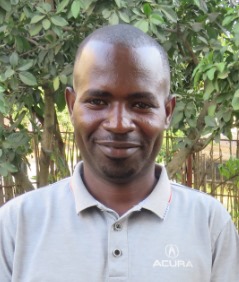
Introduction
Bubanza is one of the western provinces of Burundi. The province is commonly said to be in the Imbo Region. It is fertile and is good for producing food like corn and soybeans once they are planted in a good season. The women of Buringa Colline in Gihanga Commune are hard workers. They have learned to survive for themselves and their children day-by- day, year-in, year-out despite the great challenges that surround them.
Buringa is a colline (hill) located within the Gihanga Commune of Bubanza Province in northwestern Burundi. This area is part of the country’s lowest-lying regions, characterized by a combination of plains and valleys. It is situated near the Rusizi River and the Rukoko Natural Reserve, which contributes to its rich biodiversity but also exposes it to environmental challenges. The residents of Buringa, like many in the Gihanga Commune, face several socioeconomic hardships that impact their daily lives. One of the most pressing issues is the scarcity of clean, safe drinking water.
Buringa presents a strong potential for developing an agricultural project with local women. The area benefits from an available labor force, as many women are already engaged in subsistence farming. However, high levels of unemployment and poverty create an urgent need for sustainable income-generating opportunities, particularly for women. The region is characterized by fertile plains and its proximity to the Rusizi River, which offers opportunities for productive farming when supported with appropriate inputs and techniques. Moreover, the local women demonstrate a strong willingness to collaborate through self-help initiatives, especially when empowered with training and consistent support.
To ensure the success of an agricultural project in Buringa, several key components should be integrated. First, women should receive training in improved agricultural techniques to boost productivity. This should be accompanied by the provision of quality seeds, essential farming tools, and improved access to water. Organizing ten women into an association; a self-help group that will strengthen collaboration and collective responsibility. Additionally, facilitating market access and promoting small-scale agro-processing will help add value to their produce. Finally, incorporating savings and microfinance components will empower women economically and enhance the sustainability of the project.
This project of Cultivating Corn and Soybeans and Breeding Pigs for Vulnerable Women from Buringa Colline, Gihanga Commune in Bubanza Province will help the beneficiaries (ten vulnerable women from the Buringa Free Methodist Church) to raise their socio-economic vulnerability and become self-sustainable, self-managing and self-confident.
This project aims to improve the living conditions of vulnerable women in Bubanza Province, Gihanga Commune, Buringa Colline through the implementation of agricultural and livestock activities. With a focus on corn and soybeans, as well as pig farming, the project will provide stable income and improve food security for vulnerable women and their families.
These activities will be supported by training on modern agricultural practices and livestock management. In addition to ensuring food self-sufficiency, the project will allow vulnerable women to generate income by selling their agricultural and livestock products.
Developing the Association
To start the project, the Project Manager will collaborate with local church leaders to select 10 eligible beneficiaries. The next meeting will be with the potential beneficiaries to describe the project, the association, and the importance of working together. The Project Manager will explain the purpose of the project and emphasize the value of collaboration within the self-help association named DUTEZE IMBERE IMIRYANGO (DEVELOPING OUR FAMILIES). The beneficiaries will sign an agreement to join the association, commit to collaboration, and agree to respect the association’s leaders, rules, and regulations. Once the association is established, members will elect their officers: a President, a Secretary-Treasurer and an Advisor.
The association will be a participatory, democratic organization, with its members serving as both the workforce for development activities and the recipients of all project benefits. The self-help association will serve as the primary vehicle for implementing development activities and building capacity for self-management, self-governance and long-term self-sustainability.
Cultivating Crops
The project will be used to enable the association to engage in crop cultivation. The Project Manager and the association members will identify and select a suitable field to rent for cultivating maize and soybeans. A rental agreement with the landowner will be signed in the presence of all association members.
The beneficiaries will receive training on the cultivation of maize (corn) and soybeans. The association members will provide the labor for crop cultivation. Using the grant funds, the association will purchase tools, seeds and supplies. Under the guidance of the Project Manager, the soil will be prepared and the seeds will be planted using improved methods expected to yield greater productivity than traditional practices.
Association members will receive 40% of each harvest and 60% will be sold to support ongoing, self-sustaining crop cultivation (seed, fertilizers and renting land). Association members will also be encouraged to work for other farmers to earn additional income, which will be shared between the project association and its members and their families.
Breeding Pigs
As the rice cultivation becomes self-sustaining, the animal husbandry phase will be initiated, focusing on pig breeding. Thanks to Rector Servilien NITUNGA and for the first time, the project association will be given pigs from the Buringa Research and Development Centre. As another first, the Buringa Research and Development Centre will provide training for project beneficiaries, including training on the proper care and management of the pigs and the construction of suitable pig pens.
The pigs will be owned collectively by the association and will be housed and cared for at one site. Manure will be collected and used for composting to enhance soil fertility. When the pigs give birth, the piglets will become the property of the beneficiaries. As the herd grows, both the association and its members will be able to generate income through the sale of pigs. Profits will be reinvested to strengthen and expand the project, while enabling women to better support their households. Once the project is well-established, it may provide a foundation for launching a similar agricultural initiative to benefit another group of economically vulnerable women.
Microfinancing
The members of the project association will establish an internal microfinance program. The Project Manager will assist the women in setting up a self-financing system based on small, weekly contributions; each beneficiary will contribute 500 BIF per week to be saved in a common account. The money will be stored in a security box with three locks, and the keys will be held by three different association members. Similarly, all approved withdrawals will require the involvement of all three key holders. Association members will be able to access small, income-generating loans, which must be repaid with 5% interest. The income generated will allow the women to purchase personal items for themselves and their family members.
TWO NEW SPECIAL PROJECTS AT KIBUYE
Project Title:
- Cultivating Crops and Breeding Goats for Vulnerable Women from Kibuye Colline, Bukirasazi Commune, Gitega Province
Project Managers:
Luc NGENZEBUHORO is an ordained pastor of the Free Methodist Church. He holds a Bachelor’s degree in Bible and Theology from Hope Africa University, equipping him with strong theological knowledge and pastoral leadership skills. He currently serves as the Senior Pastor of Kibuye Free Methodist Church, where he provides spiritual oversight, leads ministry activities and supports the holistic growth of the congregation. Rev. Luc is known for his dedication to the Gospel, servant leadership and a deep commitment to development; the spiritual and social transformation of the community.
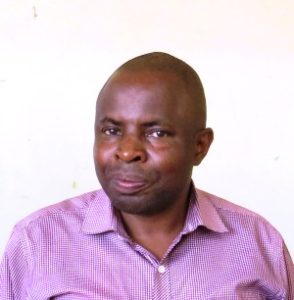
Denis NIYUNGEKO will graduate with a Higher Technician Certificate in Agriculture and Zootechnics from Hope Africa University on February 6, 2026. His academic and practical training reflects a solid foundation in Agriculture and Zootechnics that prepares him well for roles in agricultural development and livestock management. Of critical importance, he has 4 months of Foundations for Farming practical training on high production crop cultivation. His commitment to learning and applying agricultural modern techniques demonstrates his capacity and promise for future growth in project management.
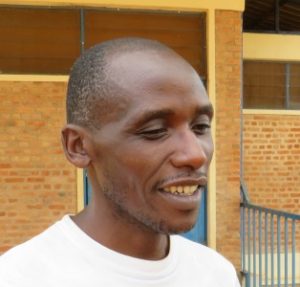
Introduction
Gitega is one of the five new provinces in Burundi, with 9 communes. This area is part of the central region of Burundi, known as the Kirimiro natural region. Historically, Gitega suffered heavily from the civil war in 1993, which resulted in many vulnerable groups, widows and orphans. Their livelihoods are based on agriculture and animal husbandry, but income remains low. Kibuye, one of the collines in Bukirasazi Commune, like much of Burundi, experiences high levels of poverty.
Although the Free Methodist Church and other NGOs have served many vulnerable women who struggle to feed their families and provide for their children’s education, they have often overlooked the key aspect of helping these women understand their primary role in overcoming their difficult conditions and becoming the solution to their own problems through a change in mentality. It is better to teach someone how to fish than to give them a fish.
This project is conceived as a practical solution to these challenges. Supporting vulnerable women not only improves their own lives but also contributes to the well-being of their families and the broader development of the entire community. As a pastor who was born in Kibuye and now serves the Kibuye Parish, Pastor Luc is well-informed about the life of Christians there, especially the widows and the most vulnerable women. To achieve the expected results, the project will select and bring together 10 vulnerable women from the church, regrouping them into an association called “Kerebuka” with the objective of promoting self-development and self-sufficiency until vulnerable women become active agents in changing their living conditions.
Developing an Association
As mentioned above, this project aims to bring together 10 vulnerable women, aged 25 to 40 years, from the Kibuye area within the Twikenure Association. To begin with, the local leaders will hold a meeting to explain the Twikenure project (“Let’s Fight Against Poverty”), its objectives, and its specific mission aimed at benefiting the community.
Next, the selected beneficiaries will be informed in detail about the association and the requirements for membership. The beneficiaries will democratically elect a President, Secretary and Treasurer for the association. The association will also be officially registered at the commune level. In addition, all beneficiaries will receive training in leadership, project management, entrepreneurship, and other relevant skills deemed beneficial to the success of the association.
Weekly meetings will be held every Friday, during which members will discuss the progress of ongoing activities. Field visits will be conducted more than once a month by the Project Managers. Together with the elected officers, the Project Managers will organize various capacity-building sessions to equip members with essential skills that will strengthen the group. The project association is expected to operate as a self-help organization, empowering vulnerable women to overcome poverty and improve the well-being of their families.
Cultivating Crops, Including Project Income for the First Year
Kirimiro historically means “rich farmland”, derived from the root word kurima, which means “to cultivate” or “to farm”. This helps us understand Kirimiro as a place where people can grow crops. Kibuye is one of the hills (collines) in the Kirimiro natural region, where a variety of crops can easily grow.
For this association; theTwikenure association, maize (corn) and beans will be the key crops cultivated at Kibuye. The Project Managers for this association, together with the members, will identify and select suitable land—approximately one hectare—for cultivation and sign a rental agreement in the presence of all beneficiaries.
Farming tools, especially hoes, will be purchased and distributed to the beneficiaries. All association members will actively participate in the farming activities, including composting, planting, fertilizing, weeding and harvesting. For each harvest, 40% will be distributed among the beneficiaries, and 60% will be sold to prepare for the next farming season. There will be no seed conservation, as all seeds will be purchased from the ISABU institution. Additionally, members will be encouraged to engage in other income-generating activities by working for other farmers and sharing the income between the association and the members.
Below is the detailed project of the first-year income in one hectare:
From one hectare of cultivated land, we anticipate harvesting approximately 1,500 kilograms of maize. With the current market price set at 2,500 BIF per kilogram, the expected income from maize alone amounts to 3,750,000 BIF. Additionally, we project a harvest of 500 kilograms of beans, which are valued at 2,000 BIF per kilogram. This results in an additional 1,000,000 BIF from beans. Therefore, the total estimated revenue from the first-year harvest of both maize and beans is 4,750,000 BIF.
Breeding Goats
For the Twikenure Association, the selected animals for breeding are goats. Goats are among the most resilient domestic animals; they are long-lived and resistant to many common illnesses. Within the association, once the agricultural activities become self-supporting, self-sustainable and self-sufficient, the group will become eligible for a second funding installment, which will be used to purchase goats.
Five to ten female goats will be bought and distributed among the association members. However, each member will care for the goat on behalf of the association until it gives birth. Every woman will also receive a designated amount from the project to build a small goat shelter, ensuring proper housing for the animal. Feeding and ensuring the security of the goats will be the responsibility of the beneficiaries.
When the goats give birth for the first time, the first kid will become the property of the woman who cared for the mother goat. Any subsequent offspring will be considered the collective property of the association. This system will also provide members with manure to support farming activities.
While goat manure can significantly help with fertilization, it may not fully meet the association’s needs once the grant period ends. Therefore, owning animals as association assets offers additional benefits—members can agree to sell one or two goats when needed to sustain agricultural activities, ensuring the long-term stability and continuity of the project.
Microfinancing
The project will establish a self-help microfinance group aimed at promoting income-generating activities. To support the launch of this initiative, a startup amount of one hundred twenty-seven thousand six hundred Burundian Francs (127,600 BIF) will be deposited into the association’s account. This fund will allow beneficiaries to begin accessing small loans.
Each member will contribute 500 BIF per week, which will serve as a sign of their commitment to the association. Members will be eligible to receive microcredit loans upon the presentation of a small income-generating project. All loans must be repaid with 5% interest per month. The additional income will allow the beneficiaries to buy personal items for themselves and their family members.
Project Title:
- Cultivating Crops and Breeding Pigs for Vulnerable Women from Kibuye Colline, Bukirasazi Commune, GITEGA Province
Project Manager:
Luc NGENZEBUHORO is an ordained pastor of the Free Methodist Church. He holds a Bachelor’s degree in Bible and Theology from Hope Africa University, equipping him with strong theological knowledge and pastoral leadership skills. He currently serves as the Senior Pastor of Kibuye Free Methodist Church, where he provides spiritual oversight, leads ministry activities, and supports the holistic growth and development of the church members. Rev. Luc is known for his dedication to the Gospel, servant leadership and deep commitment to development; the spiritual and social transformation of the community.
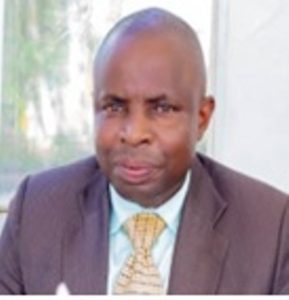
Denis NIYUNGEKO will graduate with a Higher Technician Certificate in Agriculture and Zootechnics from Hope Africa University on February 6, 2026. His academic and practical training reflects a solid foundation in Agriculture and Zootechnics, including 4 months of Foundations for Farming practical training on high productions crop cultivation, and prepares him well for roles in agricultural development and livestock management. His commitment to learning and applying agricultural modern techniques demonstrates his capacity and promise for future growth in project management.
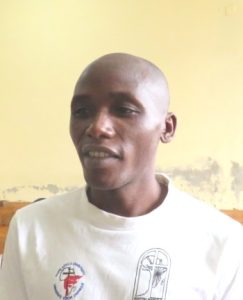
Introduction
Gitega is one of the five new provinces in Burundi with 9 communes. This area is part of the central region of Burundi, known as the Kirimiro natural region. Historically, Gitega suffered heavily from the civil war in 1993, which resulted in many vulnerable groups, widows and orphans. Their livelihoods are based on agriculture and animal husbandry, but income remains low. Kibuye is one of the collines in Bukirasazi Commune, and like much of Burundi, it experiences high levels of poverty.
Although the Free Methodist Church and other NGOs have served many vulnerable women who struggle to feed their families and provide for their children’s education, they have often overlooked the key aspect of helping these women understand their primary role in overcoming their difficult conditions and becoming the solution to their own problems through a change in mentality. It is better to teach someone how to fish than to give them a fish.
This project is conceived as a practical solution to these challenges. Supporting vulnerable women not only improves their own lives but also contributes to the well-being of their families and the broader development of the entire community. As a pastor who was born in Kibuye and now serves the Kibuye Parish, he is well-informed about the life of Christians there, especially widows and the most vulnerable women. To achieve the expected results, the project will select and bring together 10 vulnerable women from the church, regrouping them into an association called “Kerebuka” with the objective of promoting self-development and self-sufficiency until vulnerable women become active agents in changing their living conditions.
Developing an Association
As mentioned above, this project aims to bring together 10 vulnerable women, aged 25 to 40 years, from the Kibuye area within the Kerebuka Association. To begin, Pastor Luc and the local leaders will hold a meeting to explain the Kerebuka project and the association (“Be Courageous”), its objectives and its specific mission aimed at benefiting the community.
Next, the selected beneficiaries will be informed in detail about the association and the requirements for membership. The beneficiaries will democratically elect a President, Secretary and Treasurer for the association. The association will also be officially registered at the commune level. In addition, all beneficiaries will receive training in leadership, project management, entrepreneurship, and other relevant skills deemed beneficial to the success of the association.
Weekly meetings will be held every Friday, during which members will discuss the progress of ongoing activities. Field visits will be conducted more than once a month by the Project Managers. Together with the elected officers, the Project Managers will organize various capacity-building sessions to equip members with essential skills that will strengthen the group. The association is expected to operate as a self-help organization, empowering vulnerable women to overcome poverty and improve the well-being of their families.
Cultivating Crops, Including Project Income for the First Year
In the association; Kerebuka, maize (corn) and beans will be the key crops cultivated at Kibuye. As Project Managers for this association, together with the association officers, we will identify and select suitable land for cultivation—approximately one hectare—and sign a rental agreement in the presence of all the beneficiaries.
Farming tools, especially hoes, will be purchased and distributed to the beneficiaries. All association members will actively participate in the farming activities, including composting, planting, fertilizing, weeding, and harvesting. For each harvest, 40% will be distributed among the beneficiaries, and 60% will be sold to prepare for the next farming season. There will be no seed conservation, as all seeds will be purchased from the ISABU institution. Additionally, members will be encouraged to engage in other income-generating activities by working for other farmers and sharing the income between the association and the members.
Below is the detailed project of the first-year income in one hectare:
From one hectare of cultivated land, we anticipate harvesting approximately 1,500 kilograms of maize. With the current market price set at 2,500 BIF per kilogram, the expected income from maize alone amounts to 3,750,000 BIF. Additionally, we project a harvest of 500 kilograms of beans, which are valued at 2,000 BIF per kilogram. This results in an additional 1,000,000 BIF from beans. Therefore, the total estimated revenue from the first-year harvest of both maize and beans is 4,750,000 BIF.
Breeding Pigs
For the Kerebuka Association, the selected animals for breeding are pigs. Pigs are among the most resilient domestic animals; they are long-lived and resistant to many common illnesses. Within the association, once the agricultural activities become self-supporting, self-sustainable and self-sufficient, the group will become eligible for a second funding installment which will be used to purchase pigs.
Five to ten female pigs will be bought and distributed among the association members. However, each member will care for the pig on behalf of the association until it gives birth. Every woman will also receive a designated amount from the project to build a small pig shelter, ensuring proper housing for the animal. Feeding and ensuring the security of the pigs will be the responsibility of the beneficiaries.
When the pigs give birth for the first time, the first piglet will become the property of the woman who cared for the mother pig. Any subsequent offspring will be considered the collective property of the association. This system will also provide members with manure to support farming activities.
While pig manure can significantly help with fertilization, it may not fully meet the association’s needs once the grant period ends. Therefore, owning animals as association assets offers additional benefits—members can agree to sell one or two pigs when needed to sustain agricultural activities, ensuring the long-term stability and continuity of the project.
Microfinancing
The project will establish a self-help microfinance group aimed at promoting income-generating activities. To support the launch of this initiative, a startup amount of one hundred twenty-seven thousand six hundred Burundian Francs (127,600 BIF) will be deposited into the association’s account. This fund will allow beneficiaries to begin accessing small loans.
Each member will contribute 500 BIF per week, which will serve as a sign of their commitment to the association. Members will be eligible to receive microcredit loans upon the presentation of a small income-generating project. All loans must be repaid with 5% interest per month. The additional income will allow the beneficiaries to buy personal items for themselves and their family members.
We need and welcome donations to allow us to continue to be productive in starting more agriculture and livestock development projects for poor and vulnerable women and their families; see Donations – Haley-McCready Outreach and Development Fund.
